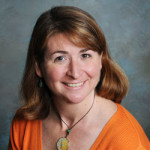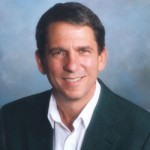
 English Professors Mara N. Scanlon and D. Brady Earnhart’s interview about Walt Whitman and the famed poet’s experiences as a Civil War nurse will be rebroadcast on the public radio program “With Good Reason” beginning Saturday, October 16.
English Professors Mara N. Scanlon and D. Brady Earnhart’s interview about Walt Whitman and the famed poet’s experiences as a Civil War nurse will be rebroadcast on the public radio program “With Good Reason” beginning Saturday, October 16.
In 1862, poet Walt Whitman went to Fredericksburg to search in field hospitals for his brother who had been wounded in a Civil War battle. Shocked by the bloodshed, Whitman worked as a nurse for years through the end of the war. Scanlon and Earnhart say Whitman helped heal wounded soldiers just as he hoped his poetry could mend the war-torn nation.
Their interview, “Whitman at War,” can be heard online at withgoodreasonradio.org/2010/10/whitman-at-war-2, and it will be rebroadcast on WCVE 88.9 FM Oct. 16 at 4:30 p.m. and on WAMU 88.5 FM Monday, October 18 at 12:30 a.m.
Earnhart and Scanlon worked with UMW instructional technology specialist James Groom on the digital humanities project “Looking for Whitman: The Poetry of Place in the Life and Work of Walt Whitman.” Funded by the National Endowment for the Humanities, the project involved collaboration with three other universities.
At UMW in fall 2009, Scanlon, Earnhart and Groom taught “Digital Whitman,” a seminar incorporating the Whitman archive at the Library of Congress as well as the nearby site of a Civil War hospital, Chatham. A website designed by Groom, http://lookingforwhitman.org, connected students enrolled in the UMW course with counterparts at universities in New Jersey and New York—each in areas pivotal to Whitman’s life and work. As students investigated those locations, they shared research via digital platforms.
Scanlon, associate professor of English, received a bachelor’s degree from the University of Virginia, an M.A. and a Ph.D. from the University of Wisconsin at Madison. Earnhart, visiting assistant professor of English, received a bachelor’s degree from The College of William and Mary, an MFA in creative writing from the University of Iowa and a Ph.D. from the University of Virginia.
To listen to other UMW faculty interviews broadcast on “With Good Reason,” visit http://www.umw.edu/news/faculty.
“With Good Reason” is the only statewide public radio program in Virginia. It hosts scholars from Virginia’s public colleges and universities who discuss the latest in research, pressing social issues and the curious and whimsical. “With Good Reason” is produced for the Virginia Higher Education Broadcasting Consortium by the Virginia Foundation for the Humanities and is broadcast in partnership with public radio stations in Virginia and Washington, D.C.
Congratulations to both of you for the interview.
I have a book in press entitled “Sufism (Islamic Mysticism) and American literary Masters.” I have devoted a major section to Whitman who seemed to have taken Eastern spirituality, in particular Persian mysticism very seriously.
I would like to know whether his interest in Sufism came after his Fredericksburg experience or before it?
Best,
Mehdi
Mehdi–
As far as I know, the extent of Whitman’s exposure to Eastern spirituality is a point of some controversy; he seems largely to have come up with parallel ideas independently of his reading, but he does drop references to Asian texts now and then in Leaves of Grass.
I hate to pass the buck, but I’d recommend checking out a few of the many biographies and religious studies of his work that are widely available.
Best,
Brady
Dr. Aminrazavi,
Congrats on your coming book! Please let us in the Office of News and Public Information know once the book is published.
Regards,
Chris
Mehdi,
You have probably already read this article, but I will post the link here just in case. http://ir.uiowa.edu/cgi/viewcontent.cgi?article=1157&context=wwqr
I don’t know much about Whitman and Sufism, to be very honest, but, as this article confirms, one book of poetry that was published in 1856 was something from which he read to Civil War soldiers, suggesting that his interest would have just preceded or coincided with his Fredericksburg experience.
peace,
Mara